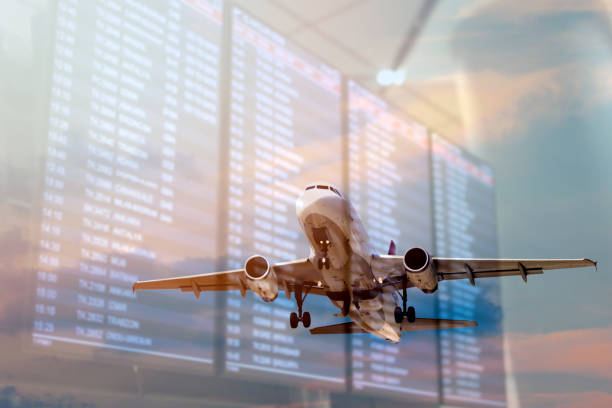Ph.D. in Aviation Management: Introduction, Admission, Registration, Eligibility, Duration, Fees, Syllabus 2024

Introduction:
A Ph.D. in Aviation Management is a prestigious doctoral program designed for individuals aiming to reach the pinnacle of academic and practical knowledge in the field of aviation management. This program equips students with the skills to conduct advanced research and contribute significantly to the aviation industry through scholarly and professional insights. Candidates engage in deep explorations of topics such as airport management, aviation safety, policy-making, and sustainable aviation practices. Completion of this degree positions graduates as experts and leaders in the field, capable of driving innovation and shaping the future of aviation on a global scale.
Admission Process:
- Application Submission: Submit a detailed application including academic transcripts, a statement of purpose, and professional resumes.
- Entrance Exam: Pass relevant entrance examinations, if required by the institution.
- Research Proposal: Present a viable research proposal that aligns with current aviation management challenges.
- Interviews: Participate in interviews with the doctoral committee to discuss research interests and career goals.
- Funding Consideration: Evaluate options for financial support, including scholarships and assistantships.
- Acceptance: Receive acceptance based on academic qualifications, research potential, and alignment with program strengths.
Eligibility:
- Master's Degree: Possess a Master’s degree in aviation, management, or a closely related field with a strong academic record.
- Professional Experience: Preferably have relevant professional experience in the aviation industry.
- Research Skills: Demonstrate capability in research methodologies and a passion for scholarly inquiry.
- Recommendations: Provide letters of recommendation from academics or industry professionals.
- Language Proficiency: Proficiency in the language of instruction, often English, with required exam scores (e.g., TOEFL, IELTS).
- Personal Interview: Clear a rigorous interview process focusing on candidate’s motivation and research aptitude.
Completion Time:
Typically, completing a Ph.D. in Aviation Management takes between 3 to 5 years, depending on the student's pace, research topic complexity, and institution specifics. The first part of the program usually involves coursework and comprehensive examinations, followed by a focus on research leading to a dissertation. Students engage deeply with specialized subjects, conducting original research that contributes new insights to the field. The final year often centers on writing and defending the dissertation, a process that demands a high level of dedication, analytical skills, and innovative thinking.
Career Opportunities:
- Academic Positions: University professorships or research positions in higher education.
- Senior Management Roles: Leadership roles in airport management, airline operations, or regulatory bodies.
- Consultancy: Advising firms on aviation strategies, policy formulation, and operational efficiency.
- Research Analyst: Roles in think tanks or research institutions focusing on aviation policies and trends.
- Government Advisory: Positions in governmental agencies dealing with aviation safety, security, and policies.
- Entrepreneurship: Starting specialized consultancies or innovative aviation-related businesses.
Syllabus:
- Advanced Aviation Economics
- Airport Operations Management
- Aviation Safety and Security Management
- Environmental Impact of Aviation
- Strategic Management in Aviation
- Quantitative and Qualitative Research Methods
Internship Opportunities:
- Corporate Internships: Hands-on experience with major airlines, airports, and aviation companies.
- Research Internships: Opportunities in academic or industry research projects.
- Government Internships: Experience with aviation regulatory bodies or public policy institutions.
- International Exchange Programs: Opportunities to work with international aviation bodies or foreign universities.
- Consulting Projects: Real-world consulting assignments from aviation businesses.
- Entrepreneurial Ventures: Initiatives in startup incubators focusing on aviation innovations.
Scholarships and Grants:
- University Fellowships: Full or partial tuition waivers with stipends for living expenses.
- Government Grants: Financial support from government agencies focused on education and research.
- Industry Sponsored Scholarships: Scholarships provided by aviation companies for promising research.
- International Scholarships: Opportunities for funding from international educational foundations.
- Research Grants: Specific funds available for aviation research projects.
- Teaching Assistantships: Employment opportunities within the university to support teaching and research.
FAQs:
What research topics are trending in aviation management?
Current trends include sustainable aviation practices, impact of global regulations on air transport, advancements in aviation technology, and the management of airline and airport operations in the face of global challenges like pandemics or economic fluctuations.
How does one choose a dissertation topic?
Dissertation topics are usually chosen based on the intersection of the student’s interests, the expertise of the faculty, and the current needs and future directions of the aviation industry. It’s advisable to consider a topic that promises significant academic contribution and practical application.
What are the job prospects after completing this Ph.D.?
Graduates often find positions as university professors, industry researchers, senior management personnel in aviation organizations, consultants, or policy advisors. The specific focus of their dissertation can also guide their career trajectory within specialized sectors of aviation.
Are there opportunities for interdisciplinary research?
Yes, many programs encourage interdisciplinary research, allowing students to integrate insights from fields like economics, environmental science, engineering, and technology with aviation management to address complex issues facing the industry.
What are the challenges faced during the Ph.D. program?
Challenges include finding a suitable dissertation topic, securing funding, managing extensive research alongside personal commitments, and staying updated with the rapidly evolving aviation industry. Additionally, the academic rigor and publication requirements can be demanding.
